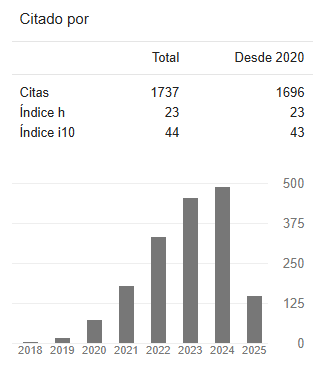100 ways to improve your writing (1)
100 ways to improve your writing (1)
Gary Provost's book "100 ways to improve your writing" offers 100 tips to improve the writing of any type of document:
https://www.samuelthomasdavies.com/book-summaries/writing/100-ways-to-improve-your-writing/
Published in 1985, it is considered a classic. A preview of the book is available at Google Books:
https://books.google.kg/books?id=hvJiQkh3b_AC&printsec=frontcover&hl=es#v=onepage&q&f=false
It's a small book, comfortable to read, reads very quickly. It is not a book oriented to writing scientific articles, the advice is very general:
Whether you're a student writing an article, or a person writing an ad, a business person writing a letter, a reporter writing a news story, an author writing a short story, novel, or non-fiction book, you'll definitely find all the ways to write better in "100 Ways to Improve Your Writing".
In the next few tips we will highlight some of the tips in this book that are most appropriate for writing scientific articles. Surely many of you already know them and are applying them, but it never hurts to reinforce what you have learned in order to continue improving your writing of scientific articles.
(1.2) Expand your vocabulary
´´´¨¨´´...] For a writer with average intelligence and education, learning new words is much less important than learning to easily use already known words.
Think for a minute, how many synonyms can you think of for the noun "Plan"? Possible synonyms are "programs, schedules, outlines, designs, and agendas. If you concentrated for a minute, you might have thought of ten words you already knew. But how many of these synonyms came easily to mind while you were writing a letter to your boss about your new and lucrative, uh... Plan?
The only way to make your vocabulary more accessible to you is to use it. If you want all those words to wait for you in the front of your brain, you must place them in the front of the brain before you need them, and this requires action.
A scientific article should be rich in vocabulary usage. For example, you should avoid using verbs like "to do" or "to get" because they are too general, used for dozens of things:
- "to do the dishes" means to wash the dishes:
https://idioms.thefreedictionary.com/do+the+dishes
- "to do lunch" means to have lunch with another person:
https://idioms.thefreedictionary.com/do+lunch
Therefore, it is good to use synonyms, but not with the key terms of the article. If, for example, you are talking about the stages of a method, during the description of the method you should use stages all the time, you should not change to steps, phases or any other synonyms.
(1.4) Read
If you are an architect, you should certainly read articles on architecture. If you are in the area of computing, you should keep up with information about bits and bytes, demodulation and interlaced fields. Reading books and trade magazines in your particular area will not only keep you informed, but will show you how experienced writers use technical vocabulary in an understandable way.
But no matter what your field of expertise, you should also read books, magazines, and newspapers that show general information.
Although the newspaper contains a lot of information that is not as useful and is often somewhat vague, it also contains some good writing. From it you can learn to write easily, you can learn to get to the main idea, and you can learn to synthesize several aspects into one sentence.
This advice is one of the first provided by any famous writer: the first step in learning to write is to read a lot, to read many quality articles in order to learn the correct way of writing.
(1.5) Take a class
If you don't believe that you can be taught how to write, then you shouldn't be reading this book. If you believe that it is possible to teach writing efficiently and consistently, you could benefit from a class.
[…]
You may wonder, but why should I take a writing class after reading a book like this?
There are three answers to that question.
With the help of a teacher and other students who read your work, you will be able to learn what your strengths and weaknesses are.
- Knowing that the class or teacher will read your work, you will work harder to achieve better writing.
You may not be able to see your own writing errors, but they will become evident when you see them in other students' work.
Sergio Lujan-Mora








